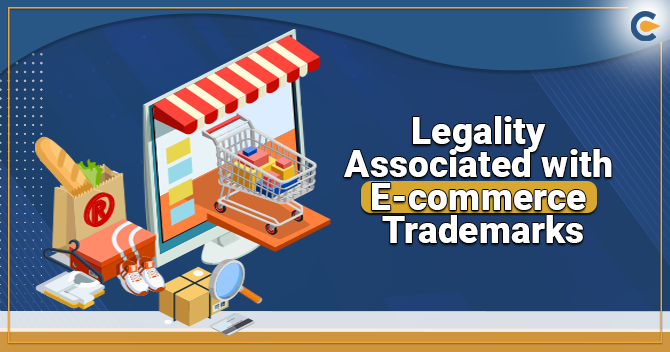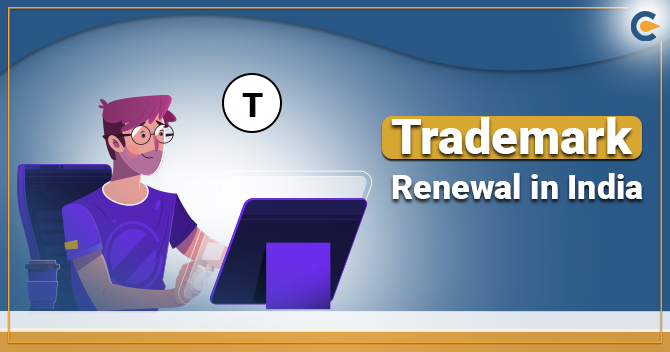In the business fraternity, trademark plays a vital role. They exist to protect you and your firm and ensure growth by improving the business presence. Your trademark ensures that no infringer can infiltrate the integrity of your brands or logo by counterfeiting them. In short, it acts as a preventive measure for the company’s intangible assets. In this write-up, we will discuss about the E Commerce Trademarks in brief.
Definition of Trademark as per Existing Bylaws
A trademark entails any name, word, design, or symbol intended to be used in commerce to distinguish the commodities of one manufacturer or seller from the counterparts serving the same area of interest. Trademark also refers to a manifestation of the source of the goods.
For the purpose of this write up it is assumed that the reader understands the basic of what a trademark is and what purpose it serves. Thereby this article will specifically emphasize the applicability of E-Commerce Trademarks.
Read our article:A Deep Analysis on Benefits of Trademark Registration
What do you Need to Understand the Fundamentals of E-Commerce Trademarks?
Because E-commerce or web-based business takes place on the internet, many of the company’s assets are present in form of intellectual property. Your intellectual property is accessible to the public domain, and that implies it is daunting than ever to regulate & manages your assets.
That’s why it is imperative to safeguard the intellectual assets with trademarks and get familiar with e-commerce trademarks to ensure that you are not violating someone else’s property.
Based on what nation you belong to, there are many legal implications surrounding trademark law. If you are hoping to monetize your intellectual property, it is advisable to seek relevant expertise to get you set up.
However, if you are dealing with an e-commerce business, you should register your trademark on your own. Most new companies will intend to do as much as they can themselves. Following tips can let you do that.
Important Commands Regarding the E-Commerce Trademarks
Even if you are managing a small firm, you must strive to get your domain name, company name, and slogan registered. If you are dealing with unique product lines, that should be trademarked as well.


Apply for Trademark for Better Protection
In India, unregistered trademarks receive some level of recognition. To create such a trademark, you need to put ™ mark behind the image or name you wish to own. Unfortunately, this mark would not render full-fledged protection against the infringers due to lack of required rights. In such circumstances, the concept of “Prior use” comes into the picture.
Do Not Violate Someone Else’s Trademark Rights
Make sure you are not infringing on someone else’s trademark rights purposely or unintentionally. To avert such complications, you can leverage a trademark search to determine if your trademark is in use or not. If you find your trademark unique in every aspect, the best thing to do is to opt for registration without further delay.
Make sure to maintain the integrity of other’s trademark rights while choosing the domain or business name. But also, when you are acting as a third-party seller for manufacturers, it is vital to ensure that you have prior consent to use the marketing material on your online store. If you are selling branded commodities, you must ensure that you have the owner’s approval to use the images & intellectual property linked with commodities before uploading them to your online store.
Go for a Distinctive Trademark
It is relatively simpler to safeguard the Distinctive trademarks, which implies that the more you promote and fortifies your brand, the easier it is to secure the trademark because it is linked with your company. It is also worth noting that just because you create a trademark doesn’t give you the rights to it, particularly if it is something descriptive or generic that would be manifested in normal language, for instance, adjective, color name, and so forth.
Ensure Transparency of IPR rights in case of Mutual Contract
Suppose, you have entered into an agreement with a website development firm to help you establish an online store. In that case, you might think nobody would breach the intellectual property (such as images, logo, and description) in the future. Basically such assets are vulnerable to infringement until the point they get registered. Make sure you thoroughly examine your contract to identify which party possesses the IPR on your website.
The same concept goes with the databases, scripts, and source code on your website. If you are running a web-based store, protecting your database should be your utmost priority.S
If you are a website development professional who has developed code for the client’s website, you are eligible to secure a trademark for your HTML code & plugins.
Conditions that Triggers Dissolution of Trademark Protection
There are scenarios where you may confront the dissolution of rights trademark protection. These include:
Abandonment
Abandonment will come in effect if you were no longer using the trademark. The inconsistent usages of the trademark would undermine its validity.
Generic Terms
If you want to trademark a widely used term, for instance, if you wish to call your Computer hardware site “Computer” as a sole name, the authority might reject your request since the term is generic and cannot be owned. But, if you used it in tandem with another word such as ‘Orange Computer’, you could trademark that.
Right are Confined to your Goods & Services
This implies that if anybody uses a similar name as yours, but the services are entirely different, you might find it hard to resist them. For instance, if you created an online game called “Punjab[1] Pests,” and then Indian based entrepreneurs open the company called ‘Punjab Pest’, you won’t be able to secure your IP rights, as the services are completely distinctive & their firm is associated with the name by nature.
Conclusion
The online business is still in the growth stage and is likely to create groundbreaking revenue in the upcoming year. With that said, the IP assets on the websites have become more vulnerable to infringing rights, which in turn raise the requirement of trademark protection to a new level.
If you are dealing with some trouble while meeting the requirement for E-Commerce Trademarks as per the existing act, approach to CorpBiz’s associates and avail best of the guidance on legal and companies’ related matters.
Read our article:Process of Trademark Registration: Step by Step Guide











